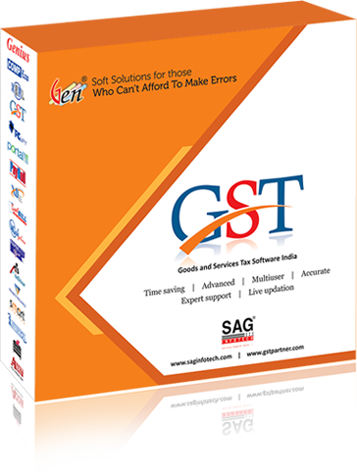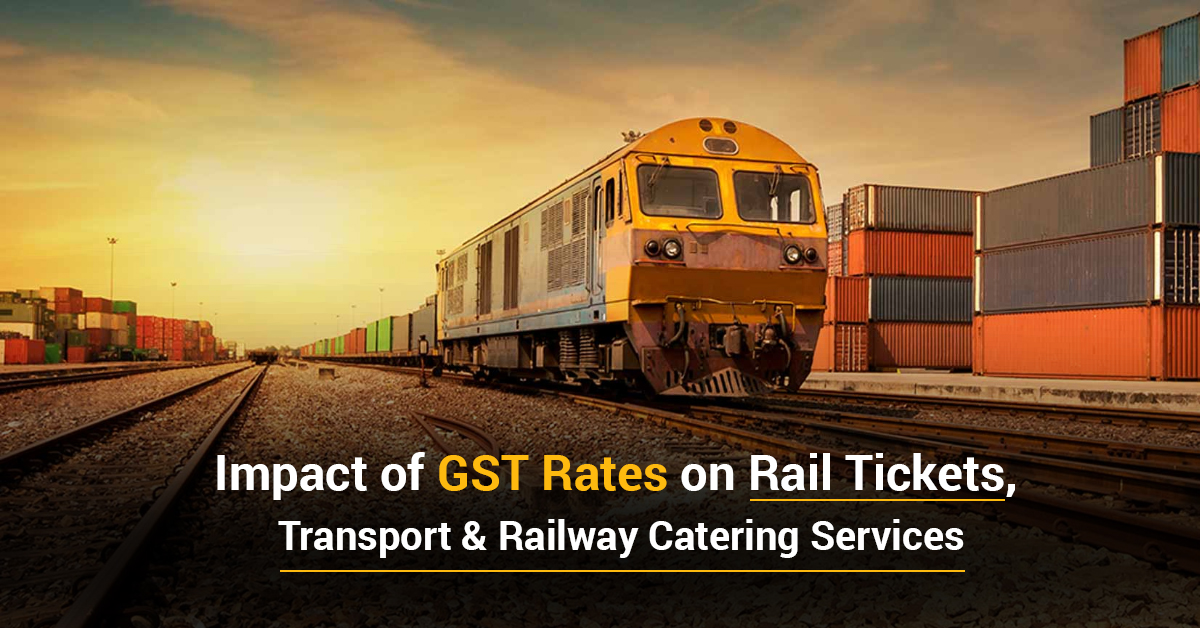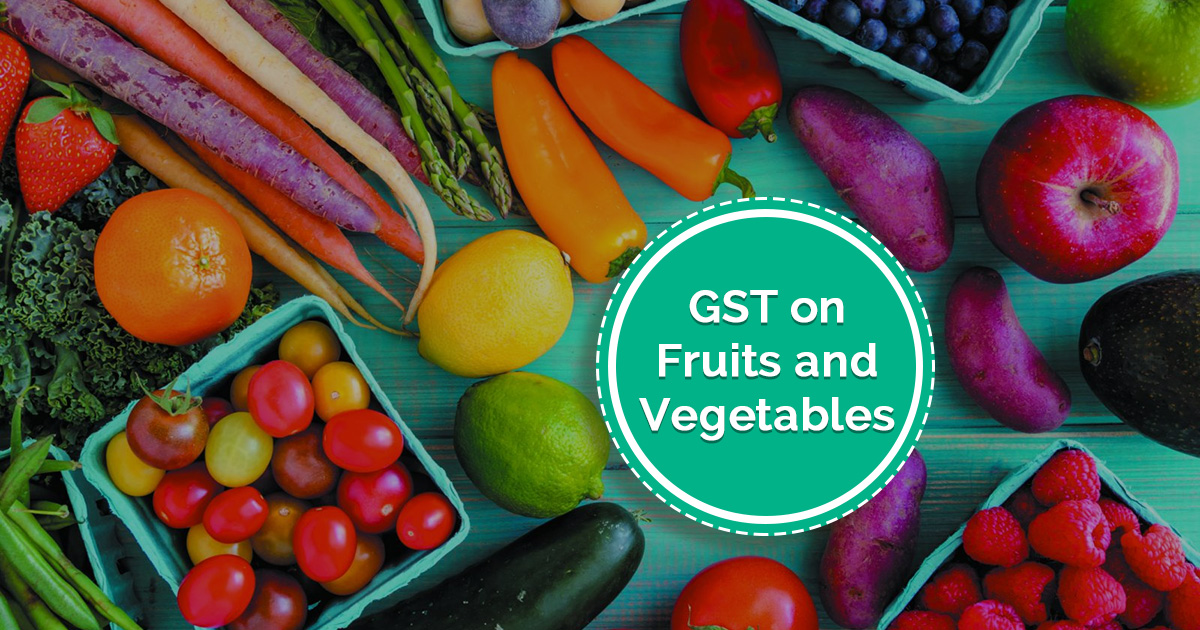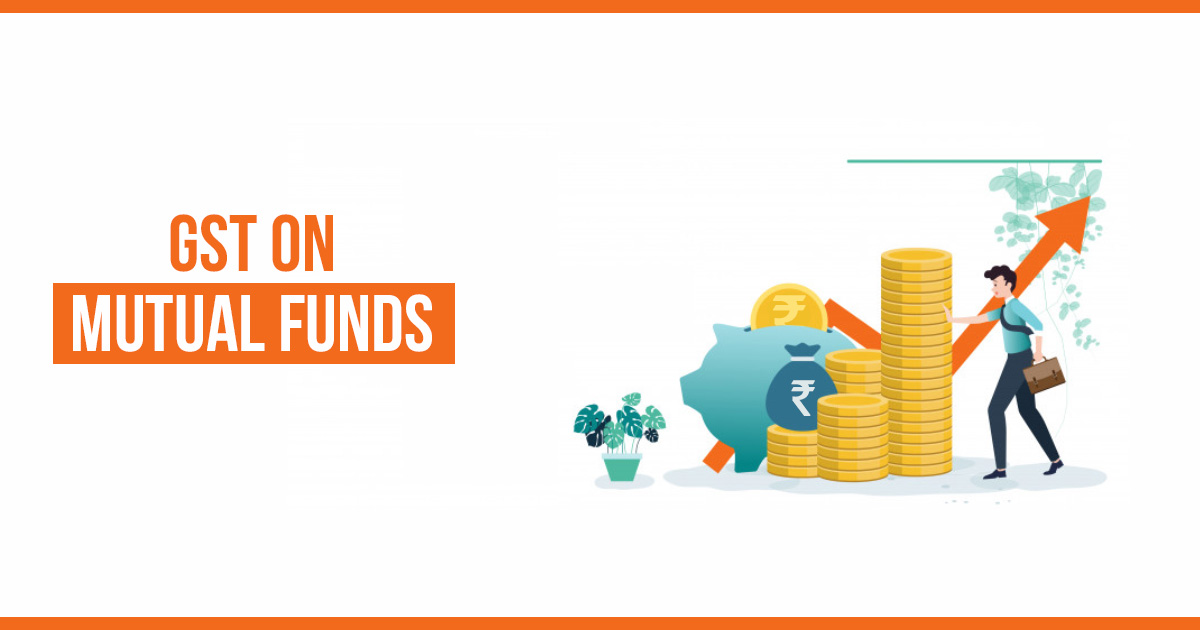The Goods & Services Tax (GST) launched in July 2017 in India is a consumption based indirect tax levied on the supply of specific goods and services.
How does GST affect travelling and eating in Indian Railways?
In this article, we will discuss the impact of GST rates on railway tickets, transportation and catering services.
Contents
GST Rate on Rail tickets and Transport Services
GST is applicable to all the supplies of goods and services made through the railways, including passenger tickets, commercial transports and catering services.
The GST is applicable at the standard rate of 5% on rail transport and catering charges, subject to various conditions as explained below.
Before GST, there was a service tax at the rate of 15% applicable to 30% of the value of transports carried out through railway and there was no tax on 70% of the transport value. That means the effective service tax was 15% of 30% = 4.5% of the transportation cost.
Clearly, the railway tax has now increased to 5% from the previous 4.5%.
GST Impact on Railway Transport of Passengers
The increase in tax rate has impacted the prices of tickets as well as the cost of transport.
Increase in Ticket Cost: There is a slight increase in the cost of tickets for passengers travelling in AC and first classes of Indian railways. The hike is only of 0.5% and may not even be noticeable depending on the actual price of the ticket.
* There is no GST (tax) on passenger tickets of second/sleeper class and metro trains.
Input Tax Credit: There is a benefit for train passengers travelling for business purposes as they can now claim ITC by showing rail ticket prices in their business expenses.
GST Impact on Railway Transport of Goods
Railways have never been a preferred choice of businesses for transporting their goods from one place to another in India, mainly because of the various paperwork and compliances involved. However, GST comes as a relief for the railway transportation industry.
Even though the effective tax rate under GST (5%) is higher than the old service tax rate of 4.5%, the overall cost of transport is lower now because of the input tax credit mechanism of the GST system. Since most of the railway transports of goods are for business purposes, ITC is available for all such transactions. This effectively puts railways ahead of the alternative road transport since there is no ITC available on the transports made via roads but tax liability is the same.
The 5% GST is also applicable to all ancillary charges that are levied on transportation of goods by rail.
GST Exempted Services (Transport of Goods)
GST is not applicable to the rail transportation of the following goods:
- Relief material and items for victims in disaster (accident, calamities, etc.) struck regions;
- Registered newspapers or magazines;
- Agriculture products and organic manure;
- Defence and military supplies;
- Railway supplies;
- Milk, food grain such as flours, rice and pulses, and salt;
- Interstate transport of trains for the purpose of repairing and maintenance or carrying goods or passengers.
GST is also not applicable to the railway services of leasing of assets by IRFC to Indian Railways.
In addition, the ticket cost of travelling in second class, sleeper class and metro has also been exempted from the GST.
Who will pay GST on Railway Transports?
B2B supplies: Registered taxable businesses (persons) making supplies to other businesses via rail transport have to pay GST on the cost of supply, however, they are able to claim ITC for the same. The invoice matching concept is used for calculating the validity of such ITC claims.
B2C supplies: For transports made to unregistered persons, Indian Railways collect the GST and deposits it to the government.
GST Rate on Railway Catering Services
As per the latest update, GST at a uniform rate of 5% is applicable on all catering services on railway stations (static) and in trains (mobile). This includes the supplies of food and drinks made on stations, platforms or trains. There is no ITC (input credit) available for such supplies.
One immediate effect of GST can be seen in terms of hike in the prices of AC and first class coaches of trains in India. Even though the change is not much, it is still noticeable. However, GST greatly benefits the transport sector as all commercial transportations made via this route are eligible for input credit. This will reduce the cost of transportation and may even lead to reduced cost of end products. Also, it reduces the need for businesses to establish different warehouses across all the states where they make supplies.






